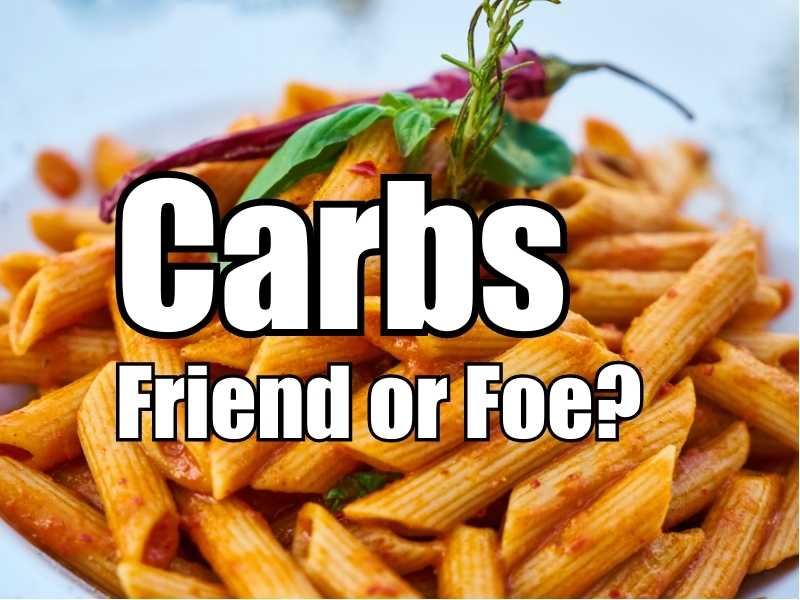Carbohydrates, often mentioned in fitness and diet discussions, tend to evoke a mixed bag of emotions. While some see them as a necessary fuel source, others view them as a weight gain villain. But what’s the truth? Let’s delve into the role of carbohydrates in health and fitness, understand the difference between healthy and unhealthy carbs, and learn how to integrate them into your diet effectively.
The Role of Carbohydrates
Carbohydrates are one of the three macronutrients our bodies need to function optimally – the others being protein and fats. Their primary role is providing energy. When you consume carbohydrates, your body breaks them down into glucose, which is then used as fuel for your cells, tissues, and organs.
In the context of fitness, carbohydrates are particularly crucial. They act as the primary energy source during high-intensity workouts. When you exercise, your muscles use stored glucose, known as glycogen, to power through. Regular carbohydrate intake ensures these glycogen stores are replenished and you have enough energy for your next workout.
Carbohydrates also play a role in brain function, as glucose is the primary energy source for the brain. Adequate carb intake can support concentration, mood, and overall cognitive function.
Healthy vs Unhealthy Carbohydrates
Not all carbohydrates are created equal. They’re often classified into two main types: simple carbs (or sugars) and complex carbs (or starches and fibers).
- Unhealthy Carbohydrates (Limit or Avoid)
- Simple Carbs: These are digested quickly, leading to a rapid spike in blood sugar and insulin levels. Regular consumption of simple carbs, especially refined ones, can lead to weight gain and increase the risk of heart disease and type 2 diabetes. They are commonly found in:
- Sugary drinks like soda and fruit juice
- Desserts and candies
- White bread, rice, and pasta
- Breakfast cereals
- Simple Carbs: These are digested quickly, leading to a rapid spike in blood sugar and insulin levels. Regular consumption of simple carbs, especially refined ones, can lead to weight gain and increase the risk of heart disease and type 2 diabetes. They are commonly found in:
- Healthy Carbohydrates (Consume More)
- Complex Carbs: These are digested more slowly, providing a steady release of energy. They’re usually high in fiber, which supports digestion, helps control blood sugar, and promotes feelings of fullness. Sources of complex carbs include:
- Whole grains like brown rice, quinoa, and oatmeal
- Legumes like lentils, chickpeas, and kidney beans
- Fruits like apples, berries, and bananas
- Vegetables like sweet potatoes, broccoli, and leafy greens
- Complex Carbs: These are digested more slowly, providing a steady release of energy. They’re usually high in fiber, which supports digestion, helps control blood sugar, and promotes feelings of fullness. Sources of complex carbs include:
A Healthy Approach to Carbohydrates
Contrary to popular belief, carbohydrates are not inherently bad. They’re a necessary part of a balanced diet. The key is focusing on consuming healthy, complex carbohydrates and limiting your intake of unhealthy, simple carbohydrates.
Here are some strategies to integrate carbs healthily into your diet:
- Choose Whole, Unprocessed Foods: Prioritize whole grains, fruits, vegetables, and legumes, which provide complex carbs and a range of other essential nutrients.
- Check the Labels: When buying packaged food, read the nutrition label. Look for products that are high in fiber and low in added sugars.
- Balance Your Plate: Aim for a balanced plate at each meal – around half of your plate should be fruits and vegetables, a quarter protein, and a quarter carbohydrates.
- Listen to Your Body: Everyone’s body responds differently to carbs. Some may need more carbs, while others may do well with less. Listen to your body and adjust your intake accordingly.
In conclusion, carbs are a necessary part of our diet that provides us with energy, supports brain function, and fuels our workouts. The key is choosing high-quality, complex carbs from whole, unprocessed foods, and maintaining a balance. When consumed in the right form and quantity, carbohydrates can support both your health and fitness goals.
Remember, it’s not about eliminating a certain food group from your diet; instead, it’s about understanding the role of each nutrient and making informed food choices. So, the next time you’re about to enjoy a meal, don’t fear the carbs – understand them, choose wisely, and enjoy the energy they provide!



